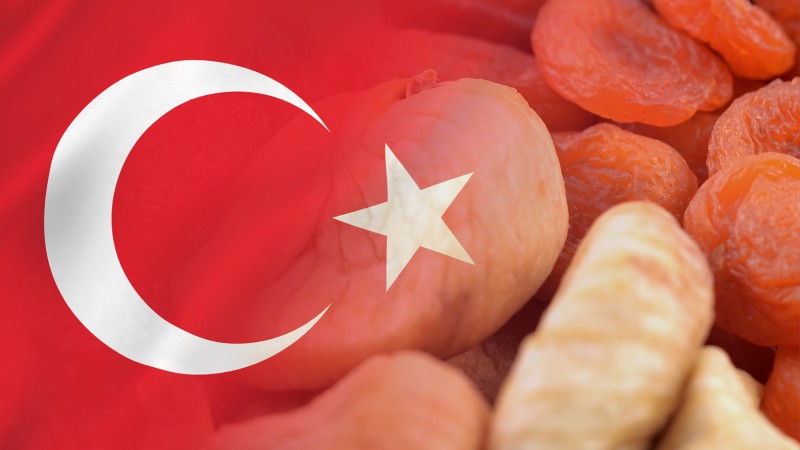Dried Fruit: “There will be changes in buying and consumption”
December 28, 2022 at 1:00 PM ,
Der AUDITOR

Which were the major difficulties faced by the dried fruit market in 2022? Were they mainly caused by the ongoing threat of the Ukraine war and the resulting energy crisis and inflation, or do you think they would have occurred in a calmer year as well?
Major difficulties being faced in the dried fruit market in Turkey were actually that farmers expected much higher price levels to cover their producing costs, as most of the agricultural chemicals and fertilisers were increased by at least 100% in Turkey due to the high inflation rates and the economical instability and crisis. It is known that almost all countries all over the World are currently faced with economical crises, but Turkey is slightly more affected. The ongoing threat is partially the result of the Ukraine war, but again, the depreciation of the Turkish Lira and the economical crisis in Turkey started before the war, actually during the pandemic.
Which effects of the coronavirus pandemic are still noticeable?
High inflation, instable economical situation, chaotic domestic markets.
In most markets, prices for feed and food commodities have increased significantly over the past year. Sultanas, apricots and figs are no exception here. Do you think that buyers will have to adjust to these higher prices in the long term, or do you expect prices to decline again?
Sultana prices are actually already at the lowest level as in the former season, prices were around USD 1600/mt while they are currently at USD 1450/mt. Most people say that this is due to the low-quality raisins of this year, as unstable weather conditions have a had bad effect on the quality of the sultanas. Apricots started at too high price levels at the beginning of the season, farmers were thinking that they could be sold at the high levels, but after two months farmers experience that exports are lower than last year and that due to the economical crisis all over the world buyers are not ready to buy in huge quantities at these high levels. They prefer buying on a prompt basis rather than concluding long term contracts. Figs have also started at high prices due to the high producing costs, but meanwhile the raw materials slightly decreased from TRY 70-75/kg to TRY 65-70/kg. The expectation is that these levels will be maintained for figs with suitable qualities, however, prices for low-quality figs are expected to decrease further.
Has the demand situation changed compared to 2021 and 2020? Do you think that some buyers and processors have had to readjust their needs?
The demand situation actually changed from long-term contracts to mostly prompt shipments and decreased, but how this will develop in the near future is unknown.
Furthermore, climate change and crop problems are real and pose a threat to all types of food and feed around the world and will most likely continue to do so. How would this affect the dried fruit market in the future and what could businesses in this industry do to improve this situation?
Climate change has affected sultanas and figs already during the drying period of this season, which might even cause raisin growers to uproot their vineyards and cultivate other products like cotton or olives; these changes have been increasing during the last year.
Considering the current crises (pandemic, energy, wars, climate change etc.), what do you think the dried fruit market has to prepare for in the coming year? Are there any major consequences to be expected for the 2023/2024 season in terms of supply and demand?
I think that buyers will continue to buy on a prompt basis to reduce their warehousing costs which will also be done by exporters respectively so that farmers will not be able to sell all their goods already at the beginning of the season as they were used to. It is for sure that there will be changes in buying and consumption because of the crises.





